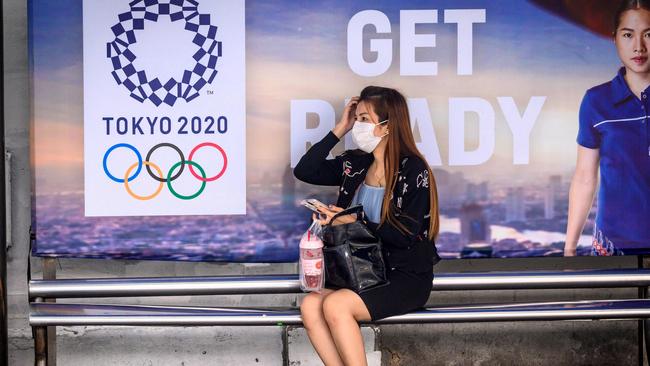Disease expert says Olympics must be stopped
The IOC is coming under more pressure to cancel the Olympics, with an infectious disease expert saying it cannot proceed as planned.

The International Olympic Committee is coming under more pressure to cancel the Olympics, despite pledging to do all they can to keep the Games on in the face of the COVID-19 pandemic.
People outside the Olympic movement are questioning the IOC and Japanese government’s plan to continue with the Games, which are set to begin on July 24.
Infectious disease expert Professor Bill Bowtell believes the Olympics should be cancelled.
“You cannot bring together mass numbers of people to Tokyo, it should not go ahead,” said Bowtell, the UNSW adjunct professor.
Some countries have privately expressed concern about whether the Olympics will proceed, while French Olympic Committee head Denis Masseglia suggested the Tokyo Games could be cancelled if the COVID-19 was not under control by the end of May.
“My feeling is that if we’re still in the crisis by the end of May, I can’t see how the Games can happen,” Masseglia told Reuters.
Jamaica Olympic Association’s chief Christopher Samuda said he wouldn’t send his athletes to Tokyo if Japanese organisers were not able to guarantee their safety.
“Above any economic or commercial concerns must be the wellbeing and welfare of our athletes and that has to be the governing consideration,” Samuda said on Nationwide Radio in Jamaica.
“I cannot afford to take a reckless decision fully well knowing that the situation is not controlled and placing our athletes at risk.”
The Japanese public have doubts, with a Kyodo News survey revealing 69.9 per cent of people do not expect the Tokyo Olympic and Paralympic Games to be held.
Days of emergency phone hook-ups were due to start overnight between the IOC, National Olympic Committee officials and international federations, including the Australian Olympic Committee CEO Matt Carroll and chef de mission Ian Chesterman, to talk about the state of affairs amid the COVID-19 pandemic.
Bowtell, who helped lead Australia’s response to the AIDS crisis, said the Olympics should not proceed as planned this July.
“If we take all the massive actions now in March, as we should do, and things are looking a bit better, you could look at it, but you will still have coronavirus out there,” Bowtell said.
“The idea you could go ahead and convene hundreds of thousands of people in Tokyo, in the most crowded cities in the world is just preposterous. It’s not like the athletes are immune … it’s an equal opportunity infector.
“What is going to happen if it goes through the athletes’ village? With all due respect to everybody, it’s not even worth having the argument. This argument is not with the IOC, it’s with the virus.”
IOC president Thomas Bach and Japanese Prime Minister Shinzo Abe have all stated they believe the Olympics will go ahead.
Australian hurdler Nick Hough said potential Olympians were dealing with uncertainty on a number of levels including with qualification events. The national athletic championships and Brisbane Track Classic were cancelled.
“As an athlete, all we can do is assume the Olympics are going ahead and going ahead on time, and we will continue to do that until we hear otherwise,” Hough, a 110m hurdler, said. “Hopefully the authorities make the smart decision — whatever the experts advise — and make it early.
“Sport pales in comparison to the health of people on a global scale. As athletes we hope the Olympics goes ahead but I personally understand if they don’t. I think most athletes would be accepting of the fact if it had to be delayed or moved to a different date.”
Hough was on track to qualify for Tokyo but was yet to secure his place on the team. Qualification deadlines have been extended to June 30 and many athletes’ training has been compromised because of COVID-19.
One Australian sports official said it was time for the IOC to lead in the face of this health crisis.
“They would get a lot more kudos by making a call on the Olympics,” the official said.
They also felt it was already an uneven playing field.
“It is so compromised already, it would be more compromised than a boycotted Games in terms of countries and athletes not being able to qualify, it wouldn’t be a fair and level playing field,” he said.




To join the conversation, please log in. Don't have an account? Register
Join the conversation, you are commenting as Logout